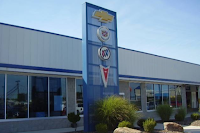Due to the huge losses suffered by commercial lenders during the Great Recession, banks are much tougher when they underwrite commercial loans these days. Will you qualify? It all depends on the three C's of underwriting - credit, capacity to repay, and collateral. Let's look at credit first.
Commercial banks are the lenders who are making most of the commercial loans today, and banks require good credit. You will usually need a credit score of at least 680, and a credit score of over 700 is greatly preferred. Now if your credit score is lower than 680, please don't panic. We recently convinced a bank to approve a commercial loan for a veterinarian with a foreclosure on his record (due to a divorce) and a credit score of just 630. And even if a bank won't do your particular deal, there are still scores of Wall Street non-prime lenders and hard money commercial mortgage companies willing to make subprime commercial loans.
When a bank underwrites a commercial borrower's capacity to repay, the bank looks primarily to the cash flow of the property. The commercial property's net operating income (NOI) must exceed the proposed commercial mortgage payment by at least 25% to 45%. In the parlance of the commercial financing industry, the debt service coverage ratio must exceed 1.25 to 1.45. Conduit lenders also require that the debt yield ratio (a brand new underwriting ratio) exceed 9.0% to 10.0%.
Commercial lenders are also demanding more collateral today. In 2006 and early 2007, commercial lenders would regularly approve commercial loans of 75% loan-to-value. Many commercial lenders even made commercial loans up to 80% loan-to-value! Then commercial real estate plummeted by 45%, and commercial lenders got hammered. They took enormous losses. As a result, immediately after the Great Recession most commercial lenders cut their loan-to-values back from 75% all the way down to 58% to 65%.
Fortunately banks have finally started to loosen up a little again. This means that it is usually possible to get a conventional commercial loan from a bank up to 70% loan-to-value. Sometimes banks will even consider a commercial loan of up to 75% LTV again, but the deal will have to be very, very strong. You are more likely to qualify for a commercial loan at higher than 70% loan-to-value if the deal is a purchase money deal (in other words, you're buying the property). Another way to get high LTV deals approved is if the borrower has lots of liquid assets, like cash in the bank and marketable securities.
One last important point about qualifying for a commercial real estate loan from a bank. There are more than 5,000 banks in America, and all of them are extremely fickle. One day a bank will refuse to even consider a commercial loan in excess of 65% LTV, and yet a month later that same bank will close a commercial loan of 75% LTV. What happened? The bank suddenly loosened up because it had found itself too liquid, and it was feeling the pressure to put some money back out on the street. The way to handle this is to approach lots of different banks with your commercial loan request.


No comments:
Post a Comment
Note: Only a member of this blog may post a comment.